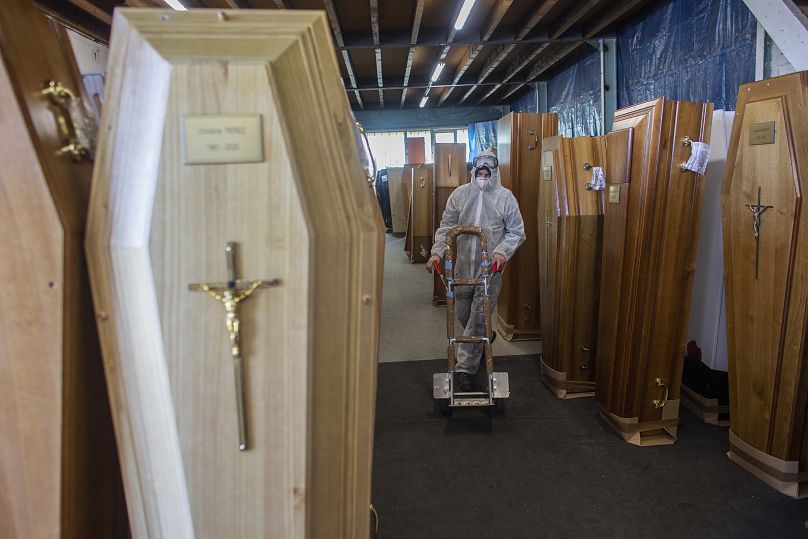Italy, Spain, the Czech Republic and Denmark have announced limited re-opening of schools and businesses.
European states are beginning to ease lockdown restrictions even as the global death toll from the deadly coronavirus approaches 130,000 people, with almost two million infected.
 ADVERTISEMENT
ADVERTISEMENT
 ADVERTISEMENT
ADVERTISEMENT
Italy announced that it would allow some shops to re-open - including book shops and stationary supply stores - in an attempt to make life easier for the millions of Italians confined to their homes. Spain this week also allowed the return to work of people in 'essential' industries.
Meanwhile, the Czech government has unveiled a plan to gradually relax restrictions imposed to contain the pandemic over five 'waves' in the coming weeks.
The plan will only go ahead if the outbreak is kept under control and rules on social distancing and the mandatory wearing of face masks remain in place.
Denmark, which was one of the first European countries to close its borders and lockdown its population, will re-open schools and daycare centres.
It comes as the European Commission is expected to unveil its roadmap for lifting containment measures across the bloc.
By contrast, France, which on Tuesday surpassed 15,000 deaths from coronavirus and 100,000 confirmed cases, has extended its countrywide lockdown until May 11.
But even as some countries begin to ease restriction on travel and movement, scientists have warned that social distancing may need to be maintained into 2022 to avoid a resurgence of COVID-19.
In a paper published April 14 in the Science journal, they warn that in the absence of a vaccine for coronavirus - which could take as long as a year - the risk is that cases spike again once lockdowns end, leading to an overwhelming of critical care facilities.
The U.S.
Elsewhere in the world, President Donald Trump said he was cutting off U.S. payments to the World Health Organization during the coronavirus pandemic, accusing the organization of failing to do enough to stop the virus from spreading when it first surfaced in China.
Trump, who had telegraphed his intentions last week, claimed the outbreak could have been contained at its source and that lives could have been saved had the U.N. health agency done a better job investigating the early reports coming out of China.
“The WHO failed in its basic duty and must be held accountable,” Trump said at a Tuesday briefing. He said the U.S. would be reviewing the WHO's actions to stop the virus before making any decision on resuming aid.
There was no immediate comment from the Geneva-based organization on Trump's announcement. But when asked about possible U.S. funding cuts during a regular U.N. briefing earlier Tuesday, WHO spokeswoman Margaret Harris responded, “Regardless of any issues, our work will go on."
The International Monetary Fund (IMF) said in its latest forecast that the world economy would suffer its worst year since the Great Depression of the 1930s -- and shrink by three percent in 2020.
Asia
South Korean voters wore masks and moved slowly between lines of tape at polling stations on Wednesday to elect lawmakers in the shadows of the spreading coronavirus.
The government resisted calls to postpone the parliamentary elections billed as a midterm referendum for President Moon Jae-in, who enters the final years of his term grappling with a historic public health crisis that is unleashing massive economic shock.











